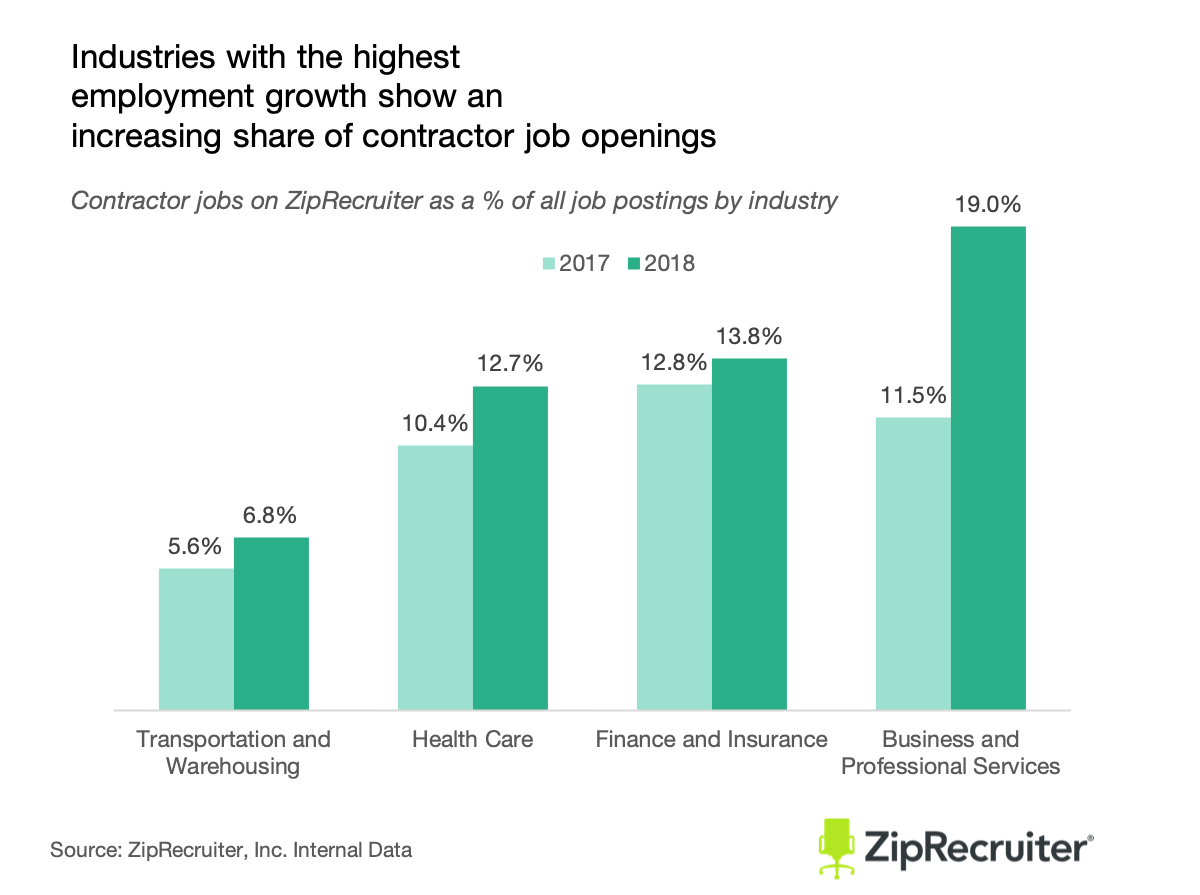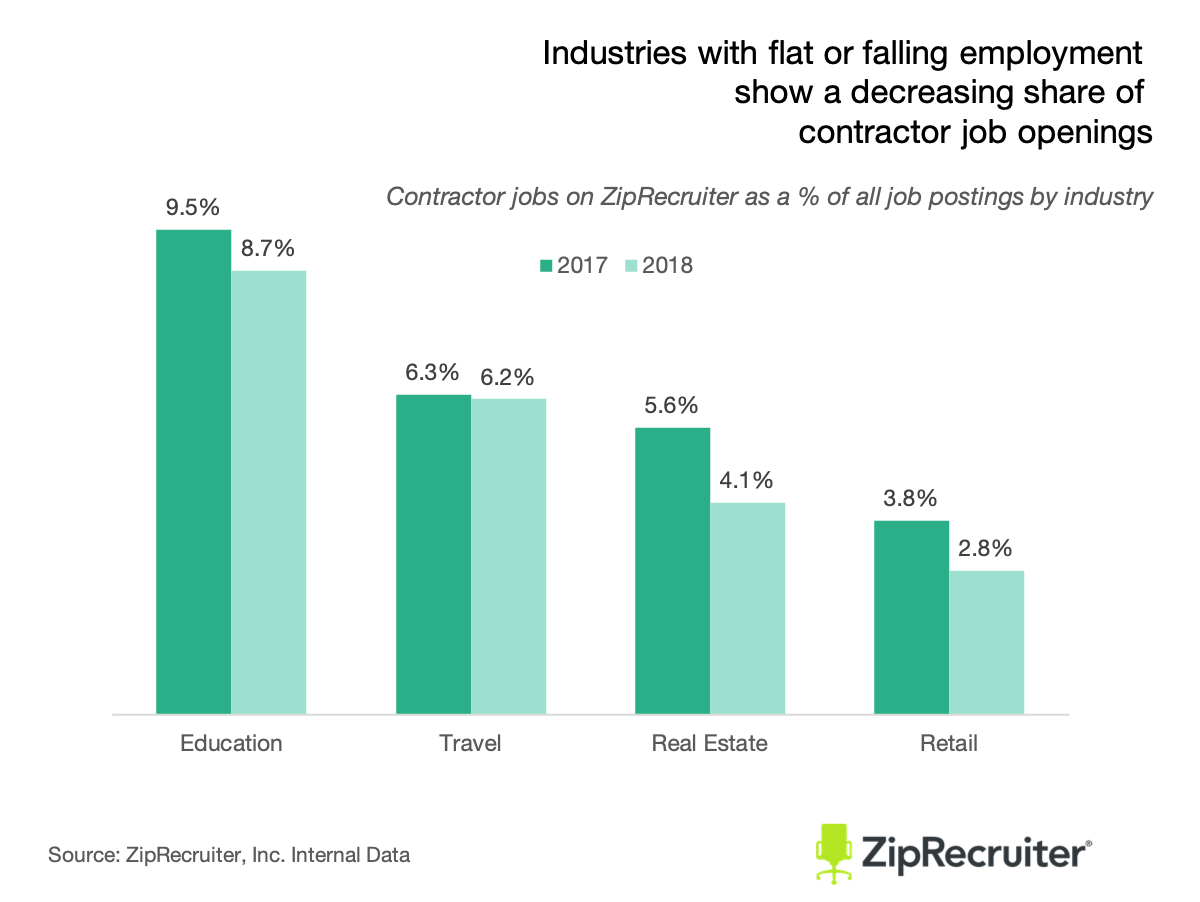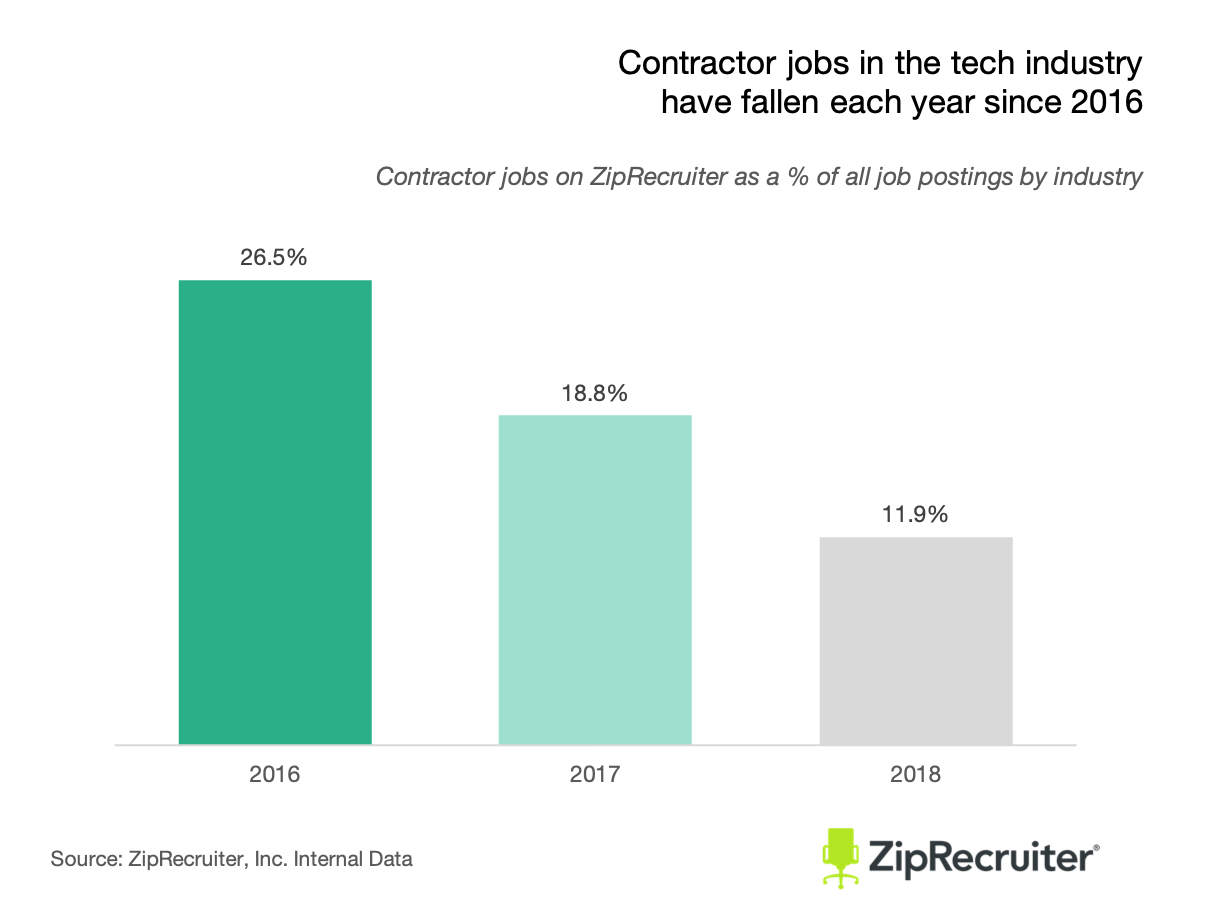The gig economy is making headlines once again thanks to a string of high profile IPOs dropping this year. In addition to the news of billion-dollar valuations and heated debates over company culture, there are more gradual changes taking place among gig economy workers and independent contractors right now that carry much greater implications for the job market than the share price for any one company.
A recent ZipRecruiter analysis of job postings found that jobs for contractors are a rising share of all jobs in industries where overall employment is growing most rapidly. This isn’t exactly unusual. Past research has found that employers use contractors to meet immediate staffing needs when labor demand is high. Contractor hiring also increases when organizations need flexibility due to rapid changes in technology. Both of which have become the status quo for many American businesses today.
What is surprising, however, is that the tech sector is defying the trend. The distribution of tech job employment types is shifting from heavy contractor employment to permanent, full-time roles, despite the rapid employment growth and technological advancements in the industry.
Given the historically tight job market, tech companies may have no other choice but to offer permanent, full-time employment with job security, benefits, and perks. Many tech companies are starving for talent and multiple ZipRecruiter surveys have found that these are the benefits job seekers want the most.
As labor markets in other industries grow tighter as well, companies outside the tech sector may be forced to follow suit. And as job seekers gain ever-greater leverage over the hiring process, it may be only a matter of time before a generation of freelancers is converted to permanent, full-time status.
More Work, More Contractors
In 2018, job postings for contractors grew at the fastest rate in professional and business services, the sector that added the most jobs (561,000 according to Labor Department estimates) to the economy. The share of contractor job postings rose 6.5 percentage points to nearly one-fifth of all postings in the sector.

At the same time contractor postings have fallen in industries with sluggish or uncertain growth, tumbling by a full percentage point or more in retail and real estate. Overall employment growth has been weak this past year in real estate, largely due to a sluggish housing market, and in retail, largely due to the increasing dominance of e-commerce.

A Bellwether of Change Towards Permanent, Full-time Employment
With tech sector demand for software developers and data scientists continuing to soar, a rising share of applicants are currently employed, especially those with coveted skill sets. Tech sector job seekers want the higher pay, better benefits, and increased job security that comes with full-time employment. Judging from ZipRecruiter job postings, employers are heeding the call.
In just two years, the share of contractor job postings in tech has fallen by nearly 15 percentage points and the industry has gone from being among the most contractor-heavy to having about the average number of contractor postings across all industries combined.

What This Means for Job Seekers and Employers
This could be good news for independent contractors, the majority of whom rely on their contract work as their sole source of income. Even though independent contractors say they enjoy the flexibility of their contract work, most say they would prefer full-time jobs.
This suggests the increase in contractor hiring that we are seeing in rapidly expanding occupations could be short-lived. If the labor market continues to tighten, high turnover and hiring challenges will force more employers to convert contractors to permanent staff with perks and benefits, even outside of the booming tech sector. Employers who wish to stay one step ahead of the competition may want to consider converting to a permanent, in-house hiring plan before the market forces them to.
As contractors are converted to permanent staff, they may not necessarily have to give up the flexibility they enjoy entirely. In addition to offering the benefits that come with a full-time role, tight labor markets are also forcing employers to offer more schedule flexibility to permanent, salaried staff. Powered by technologies like Slack and video conferencing, offering remote work is easier for employers than ever before.









